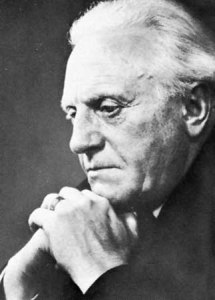from The Death of Ahasuerus (Ahasversus död: 1960), by Pär Fabian Lagerkvist (23 May 1891 – 11 July 1974)
“Beyond the gods, beyond all that falsifies and coarsens the world of holiness, beyond all lies and distortion, all twisted divinities and all the abortions of human imagination, there must be something stupendous which is unaccessible to us. Which, but our very failure to capture it, demonstrates how inaccessible it is. Beyond all the sacred clutter the holy thing itself must exist. That I believe, of that I am certain.”
“God is what divides us from the divine. Hinders us from drinking at the spring itself. To god I do not kneel – no, and I never will. But I would gladly lie down at the spring to drink from it – to quench my thirst, my burning thirst for what I cannot conceive of, but which I know exists. At the spring I would gladly kneel.”
“And perhaps that is what I’m doing now. Now that the battle is over at last and I may die. Now that at last I have won peace.”
All at once the room was filled with a radiant light. It was extraordinary. And it happened suddenly, as by a miracle.
“What’s this light – this glorious light I can see?” he whispered faintly, so faintly that the little lay brother could hardly catch it.
The brother bent down and explained that the clouds had dispersed and that the sun was shining straight in upon him. For he wanted to say no more than the truth, and to state the facts as they were.
And with this light – the light so familiar to earth – upon him, he left the world.
For a long time the little lay brother stood looking at the dead man – at his remarkable face which now radiated so perfect a tranquility. It had not done so when he came here that stormy night. What had so changed him?
Who could he be, this stranger, this singular guest? He didn’t know. No one in the monastery knew. Was he really a pilgrim? Was he even a Christian? No one knew.
But his peace was great. That, one could see.

